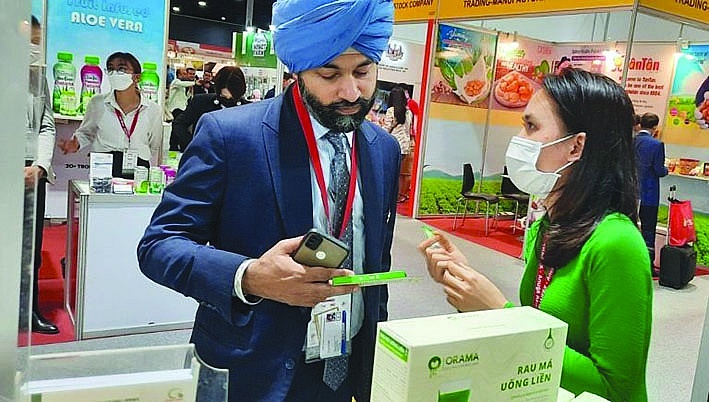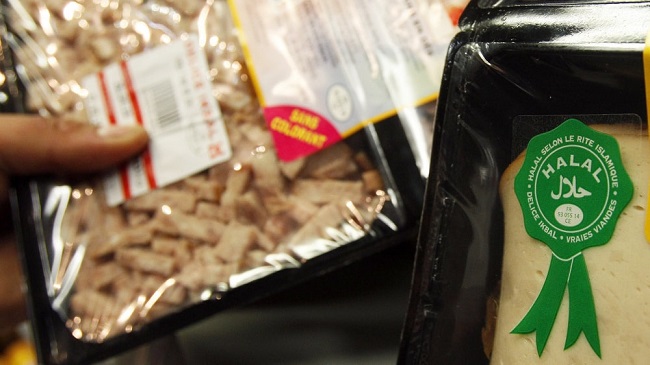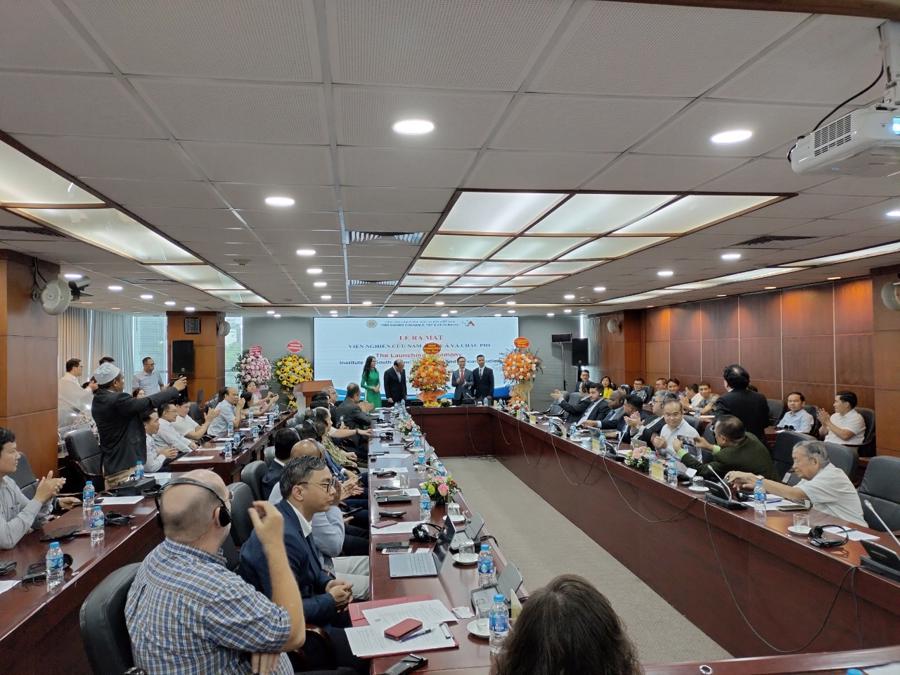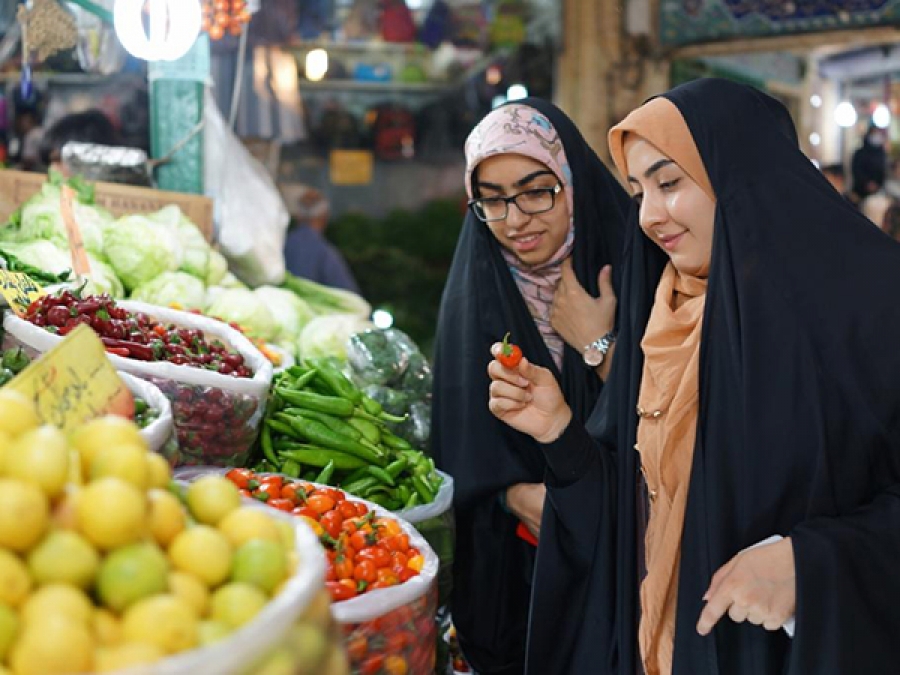(VietQ.vn) – With the impressive acceleration of the tourism sector since the end of 2023, particularly the positive signs in early 2024, the stage is set for Vietnam’s tourism to make a strong breakthrough in 2024.
In 2023, the global situation was quite complex, with global tourism recovering to nearly 90% of pre-pandemic levels. However, the recovery in Asia was the slowest, reaching only about 62%. Domestically, the socio-economic situation showed a positive recovery trend, but many difficulties and challenges remained.
Despite these challenges, Vietnam’s tourism in 2023 welcomed 12.6 million international visitors, exceeding the initial target by 57% and meeting the adjusted goal of 12-13 million visitors. Domestic visitors reached 108 million, surpassing the 2023 plan by 6%. The total revenue from tourism is estimated at 678 trillion VND, exceeding the 2023 target by 4.3%.
However, Vietnam’s tourism still faces many difficulties and challenges. The number of international tourists has recovered relatively slowly compared to other countries in the region. Furthermore, the connection and exploitation of new and potential markets are still slow and face many difficulties. The restoration of international flight routes to pre-COVID-19 frequencies remains sluggish.
Recently, several countries worldwide have been focusing on and expanding the tourism market for Muslim travelers. The rapid increase in Muslim tourists globally has driven the emergence of a trend characterized by the growing demand for tourist destinations offering Halal cuisine, prayer facilities, and other services that align with their religious observances. Hence, the concept of Muslim-friendly tourism has emerged, referring to destinations and services that meet the needs of Muslim travelers. In this article, we will explore the key components of welcoming Muslim-friendly tourism.
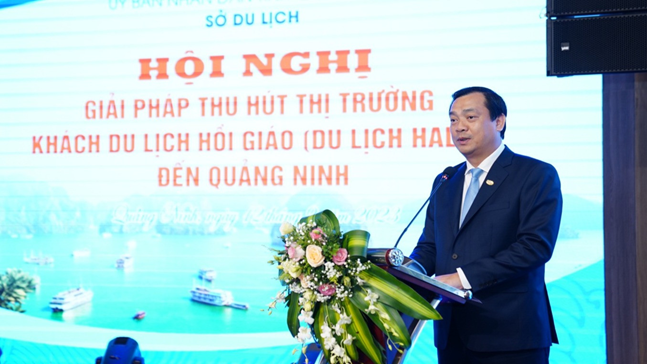
Muslim-Friendly Hotels
Muslim-friendly hotels are an increasing trend in the hospitality industry, catering to the needs of Muslim travelers seeking accommodations that align with their religious beliefs and practices. These hotels are distinguished by a range of features reflecting Islamic values and customs, such as no alcohol and gambling, exclusively offering Halal cuisine, and providing religious amenities in each room.
The presence of the Quran, prayer rugs, and a Qibla direction arrow pointing towards Mecca in every room is one of the most prominent features of hotels catering to Muslims. This allows guests to conveniently and privately perform their daily prayers in their personal space without having to find an appropriate location or disturb other guests.
In addition to these religious amenities, Muslim-friendly hotels ensure that beds and toilets are positioned so they do not face Mecca, as doing so would be seen as disrespectful in Islamic culture. This attention to detail reflects the hotel’s commitment to providing a respectful and authentic experience for their guests.
Providing separate recreational facilities for men and women is another key feature of Muslim-friendly hotels. This allows travelers to engage in leisure activities in a comfortable and modest setting without compromising their religious values or beliefs.
Furthermore, Muslim-friendly hotels are expected to employ staff who dress modestly and adhere to Islamic principles, fostering a welcoming and respectful environment for Muslim travelers. This meticulous attention to detail also extends to the hotel’s sources of funding, which often come from Muslim investors and organizations.
Halal Transport (Airlines/Aviation)
In today’s globalized environment, the demand for Halal products and services has risen significantly. Muslim travelers who wish to adhere to their religious beliefs while traveling often use Halal transportation, especially in the aviation industry. To cater to this growing market, Halal transport must ensure that its fleet is equipped with essential indicators aligned with the principles of Islamic law.
Maintaining cleanliness is the most critical criterion in assessing Halal compliance in transportation. Islam places great emphasis on hygiene; therefore, Halal transport is required to uphold perfect standards of cleanliness in all its operations. This includes not only the aircraft in question but also the associated airport infrastructure, such as designated areas for religious facilities and restrooms. Through strict maintenance and sanitation procedures, Halal transport ensures a pristine and hospitable environment for its valued passengers.
The availability of non-alcoholic beverages serves as an additional criterion for Halal transport. Since Islamic law prohibits the consumption of alcohol, Halal transport must refrain from offering such drinks throughout its flights. It is recommended that a variety of non-alcoholic beverages, in accordance with Islamic principles, be provided. These options may include fresh juices, carbonated drinks, and other non-intoxicating beverages.
Finally, Halal transport must ensure that its publications adhere to Islamic guidelines. This includes not only the periodic publications distributed onboard but also safety cards, menus, and other materials provided to passengers. By ensuring that their publications comply with Islamic principles, Halal transport demonstrates its dedication to offering passengers a comfortable and authentic Halal travel experience.
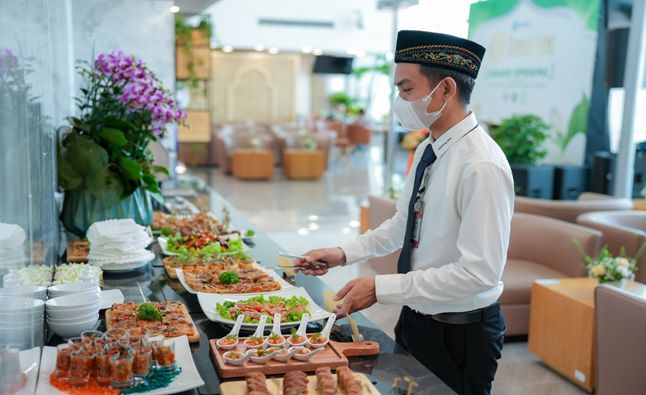
Halal Food Establishments
Recently, the concept of Halal food establishments has garnered attention, particularly within the Muslim community. Muslims are religiously obliged to consume only Halal food, which is meticulously prepared and presented according to Islamic principles. Consequently, Halal food establishments have emerged as a preferred choice for Muslims seeking dining experiences that align with their religious dietary restrictions.
A fundamental aspect of Halal food establishments is that all animals used for food must be slaughtered according to Islamic guidelines. This involves severing the animal’s windpipe with a sharp knife while invoking the name of Allah. This method is believed to ensure that all the animal’s blood is drained, rendering the meat Halal and suitable for consumption.
In addition to Halal slaughtering requirements, Halal food establishments are prohibited from serving alcoholic beverages, aligning with Islamic teachings that forbid alcohol consumption. Instead, these establishments typically offer a wide range of non-alcoholic drinks, such as fruit juices and carbonated beverages.
The importance of Halal food establishments cannot be overstated, especially with the growing global Muslim population. By offering Halal dining options, these establishments meet the needs of Muslim customers and foster a greater appreciation for Islamic dietary requirements.
Muslim-Friendly Travel Packages
In recent years, Halal travel packages have become a popular tourism trend, catering to Muslim travelers who desire vacations that adhere to their religious values and beliefs. These journeys aim to provide an exceptional travel experience with a focus on Islamic themes and customs.
Incorporating visits to mosques and Islamic heritage sites is a defining feature of Halal tour packages. This allows travelers to immerse themselves in the rich history and culture of Islam while engaging in spiritual reflection and contemplation.
Beyond these cultural experiences, Halal travel packages often include events and activities tailored to the specific needs of Muslim travelers. For example, many itineraries feature activities unique to the month of Ramadan, such as iftar dinners (breaking of the fast) and Taraweeh prayers, allowing travelers to fully participate in the religious activities of this important month.
Halal Financial System
The Halal financial system has emerged as a novel approach to financial management in today’s global economy. This ingenious approach ensures that the financial operations of hotels, restaurants, travel agencies, and airlines adhere to Islamic principles. Essentially, the Halal financial system requires all parties involved in a financial enterprise to engage in profit and loss sharing while prohibiting interest-based transactions.
The principles of Halal finance, which prioritize moral and ethical values in financial matters, are derived from the Islamic faith. The foundational premise of this approach is that all parties involved in financial transactions must engage in objective, transparent, and equitable dealings.
One of the standout features of the Halal financial system is the practice of profit and loss sharing. This means that every entity participating in a monetary exchange must bear a corresponding amount of risk and benefit in the venture. This specific approach fosters a sense of collective responsibility and encourages all stakeholders to work together to achieve the organization’s goals.
The prevention of usury (riba) is a core component of Halal finance. This premise is based on the view that interest-based financial transactions are inherently exploitative and unfair. To optimize the mutual benefit of all stakeholders involved in an investment, the Halal financial system advocates for the use of alternative financial instruments, such as profit-sharing agreements.
Recently, the Halal financial system has gained significant traction in the hospitality sector. Under Halal finance, hotels, restaurants, travel companies, and airlines are required to handle their financial operations in full compliance with Islamic law. All financial transactions must be conducted in an objective, transparent, and fair manner.
Conclusion
In conclusion, Muslim-friendly tourism is an emerging trend that is becoming increasingly popular among Muslim travelers worldwide. Muslim-friendly hotels, Halal transport (airlines), Halal food establishments, Muslim-friendly travel packages, and the Halal financial system are some of the key components that need to be developed.
As the number of Muslim travelers continues to rise, the tourism industry must adapt and cater to their requirements to remain competitive in the global market. If these five elements are properly implemented, we can undoubtedly elevate the Muslim-friendly tourism industry to new heights.


